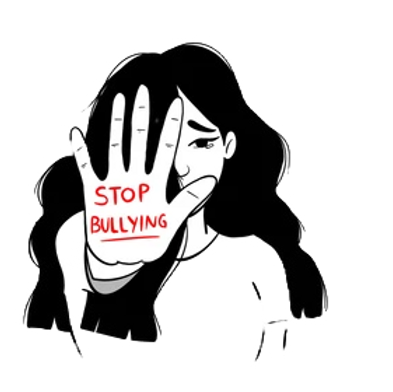Real Life Stories of People who experience Bullying

Cyber bullying victim, Hannah, shares her story:
I can feel their eyes on me as I walk to class. Everyone will have seen the pictures by now, and since they look real, no one believes that they that are digital creations. I can hear people whispering and snickering whenever I walk into a room. Text messages taunt me every day, and I think I know who is sending them, but without proof I feel helpless. The latest text says that I should expect more of the same if I don't do whatever they tell me to do. I'm scared to tell my parents because they might think the pictures are real, and I'm ashamed for them to find out what the other kids think of me.
Beth's experience as a parent of a bullied child:
I don't know what I should do to help my son. He has begged me not to report the bullying to his school; he believes everyone will find out and think he is weak. I desperately want to avoid betraying his trust, but I can see how this abuse is starting to destroy him. He used to be happy and outgoing, and now he is so quiet at home. He is almost unrecognizable to me, but when he first told me about being bullied, he made me promise not to discuss it with his teachers.
What is bullying?
Bullying is the use of force, coercion, hurtful teasing or threat, to abuse, aggressively dominate or intimidate. The behavior is often repeated and habitual. One essential prerequisite is the perception (by the bully or by others) of an imbalance of physical or social power.

How to Prevent Bullying
Parents, school staff, and other caring adults have a role to play in preventing bullying. They can:
-
Help kids understand bullying. Talk about what bullying is and how to stand up to it safely. Tell kids bullying is unacceptable. Make sure kids know how to get help.
-
Keep the lines of communication open. Check in with kids often. Listen to them. Know their friends, ask about school, and understand their concerns.
-
Encourage kids to do what they love. Special activities, interests, and hobbies can boost confidence, help kids make friends, and protect them from bullying behavior.
-
Model how to treat others with kindness and respect.


Help Kids Understand Bullying
Kids who know what bullying is can better identify it. They can talk about bullying if it happens to them or others. Kids need to know ways to safely stand up to bullying and how to get help.
-
Encourage kids to speak to a trusted adult if they are bullied or see others being bullied. The adult can give comfort, support, and advice, even if they can’t solve the problem directly. Encourage the child to report bullying if it happens.
-
Talk about how to stand up to kids who bully. Give tips, like using humor and saying “stop” directly and confidently. Talk about what to do if those actions don’t work, like walking away.
-
Talk about strategies for staying safe, such as staying near adults or groups of other kids.
-
Urge them to help kids who are bullied by showing kindness or getting help.
-
Watch the short webisodes and discuss them - PDF with kids.
Effects of bullying
The effect of bullying on children can be very dire. It can lead to academic underachievement and suspension from school among other consequences. Children who are bullied often feel unsafe in their schools and fear getting to school or go there for fear of being victimized by bullies again and again. This phenomenon is called “school phobia” or “school refusal.” Many children with this condition give up on attending school altogether which negatively impacts them academically and socially. We know that bullying can lead to various problems such as: anxiety, depression, stress, anger and low self-esteem. It can also have a negative effect on school performance. Bullying behaviors are associated with violence and criminal behavior later in life. Bullying can affect everyone—those who are bullied, those who bully, and those who witness bullying. Bullying is linked to many negative outcomes including impacts on mental health, substance use, and suicide. It is important to talk to kids to determine whether bullying—or something else—is a concern.


Kids who are bullied
Kids who are bullied can experience negative physical, social, emotional, academic, and mental health issues. Kids who are bullied are more likely to experience:
-
Depression and anxiety, increased feelings of sadness and loneliness, changes in sleep and eating patterns, and loss of interest in activities they used to enjoy. These issues may persist into adulthood.
-
Health complaints
-
Decreased academic achievement—GPA and standardized test scores—and school participation. They are more likely to miss, skip, or drop out of school.

